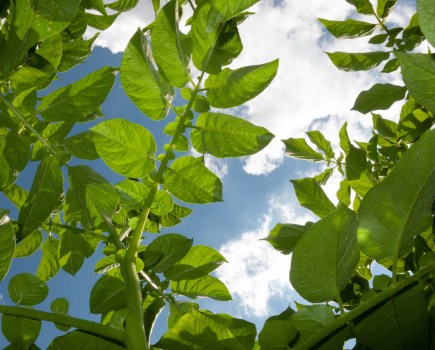A new partnership between Bayer and Niab will see researchers embark on a series of innovative projects.
The work is focussing on the exploitation of genetic diversity in wheat, control of flowering in strawberry, root symbiosis in wheat, and phenotyping technology.
Bayer-Niab Challenge Grant Program
The five projects, which started this autumn, have been funded by the Bayer-Niab Challenge Grant Program, created to support innovative science in areas of interest to both organisations. Bayer is providing financial and mentorship resources – a total award of £100,000 over one year, plus access to its leading crop science researchers who’ll provide guidance as the work progresses.
Dr Phil Taylor, director of open innovation and outreach for Bayer’s crop science division, says: “The Bayer-Niab Challenge Grant Program provides an exclusive opportunity for Niab scientists to receive funding for cutting edge ideas and connect with the Bayer team for their execution.
“We’re looking forward to advancing innovations together in what’s an exciting time for plant science in the UK as it moves forward with detailed regulations for precision breeding in England.”
Genetic diversity
Two of the projects aim to advance understanding of genetic diversity in wheat. Niab director of research, Professor Xiangming Xu, is coordinating the programme. “We’re using two different approaches to help us better understand and exploit genetic diversity in the D-genome, facilitating further genetic discovery and exploration of haplotypes linked to useful traits such as disease resistance.”
A third project in wheat will investigate how the symbiosis between plant roots and specific soil microbes can improve nutrient use efficiency and resilience to abiotic stress and examine whether genomic information as well as root architecture can be used to predict the potential of plant and mycorrhizal symbioses.
Phenotyping
Then, another project will develop tools for using multi-spectral images to phenotype key plant traits such as health and nutrient status, advancing the use of artificial intelligence (AI) in phenotyping for research and commercial agriculture.
Finally, Niab’s expertise in horticultural genetics will be harnessed in a project investigating temperature-dependent flowering regulation in strawberries.
“With this funding we’ve been able to set up projects focused on basic research or development of new tools across a range of crop science areas. This is an exciting opportunity to work with Bayer to verify new ideas and take them forward,” concludes Xiangming.




